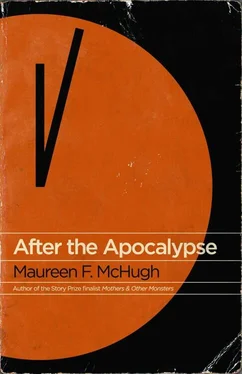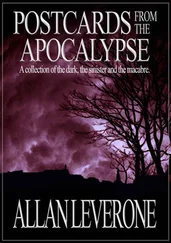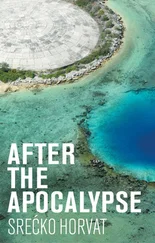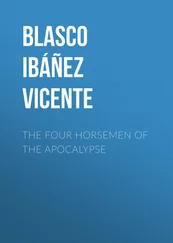He didn’t. He had a neat little Van Dyke beard. He worked in California, doing something in the television industry. One of those mysterious credits at the end, AGD Assistant. Best Boy.
The breeze plucked at his shirt, a cotton, short-sleeved thing, faded-looking but clean. Where had they done laundry?
The red-haired woman had a kind of crisp confidence about her. She wasn’t British. She was a paralegal from California. The third woman they had just found traveling through Nevada. I steered the boat out into the Atlantic. The sea was just a little choppy and gray, a very Atlantic early morning, I thought.
There was something wrong with the third woman. She was young, maybe twenty? She was short, and she looked wrong. Not Down syndrome, maybe autistic? She never spoke. The other two included her without particularly looking at or speaking to her. It was just that they all had this thing in common, that they could fly. They had come east across the U.S., flying by day, like hitchhikers or something, only not needing rides. They were going to fly to France. Since they couldn’t actually fly when they were sleeping, this was dangerous, and yet they felt they had to. They didn’t talk about it. But the Englishman was the most worried. He had been brushed by mortality, and the crisp woman seemed caught up in dealing with logistics, and the autistic one was just pure compulsion.
The little outboard motor puttered. I asked the Englishman if he had been to Paris. “Years ago,” he said. “Back in the seventies. When I was a student, before I came to the States. Disco and all that.”
I wondered why they could fly. I wished I could fly. I had had flying dreams. I had met them coming down the street in the early early morning, and the crisp woman had asked me if I knew someone who could take them out to sea. They were empty-handed, except that the crisp woman had a fanny pack. The autistic one was wearing a long red dress, burgundy really, the hem dirty. She had those soft, naturally red lips that some children have. The kind that make me feel that perhaps there is too much saliva involved.
I asked them why they needed to go out to sea, and the crisp woman said they needed a head start on their crossing. They didn’t hide that they could fly. I thought they were tired of hiding and traveling to get to the ocean and now that it was so near, they were just shedding things, becoming their own essential selves and their compulsion. They showed me how they flew, the woman leaning her head back and spreading her arms a little away from her sides and then just rising. She went up about five feet and then dropped back down to land on the sidewalk, next to the neighbor’s wall which was covered with bougainvillea, now bright red in the pale and slanted morning light.
“How are you going to cross the Atlantic?” I asked.
They just shrugged. “We don’t know,” the Englishman admitted.
What was I going to do, call the police? So I walked down to the beach with them, and then they climbed into my little aluminum skiff, the Englishman sitting slightly hunched in the prow. I gave him an aspirin and a granola bar and gave the other two granola bars, too. They were nice, in a distracted sort of way. I felt as if I was smuggling refugees, maybe off a Caribbean island in the dawn of an insurrection, a bloody revolution that would rise up against anyone perceived as a colonial. It was a funny little fantasy.
When we had gone out about a mile I saw some other boats, clustering. The Englishman, the crisp woman, and I saw them, and we headed for them. They bobbed a bit, clustered together, all different kinds of boats but most of them bigger than mine. It turned out that there were about eighteen of the flyers, all drawn to the Atlantic and needing to fly to France. I recognized one of them—my high school American Literature teacher, a small and very quiet woman who looked, appropriately enough, a little like Emily Dickinson and whom I hadn’t seen in over ten years. She was wearing a cardigan sweater and white pants and looked birdlike. She smiled at me, but in a kind of courteous way. I didn’t think she recognized me. I had changed since then. A lot more than she had.
The crisp woman cupped her hands and hulloed.
A man from one of the other boats called back, “We’re going to follow a cruise ship, so we have some place at night.”
There was a general brightening up of the three of us, excluding, of course, the autistic woman, who was looking at the other boats and humming. The Englishman still looked rueful.
“Maybe you could go without flying yourself?” I asked. But he only shook his head.
By then the sun was well up and the haze had burned off and they all stood up and sort of let their shoulders go back and drop. Their chests rising and opening in a way that would please my yoga teacher, they began one by one to rise.
Once back on land, I realized that I could go to France, too. I couldn’t fly, but I could fly in an airplane. I went straight home and got on Priceline and, without telling anyone, booked a ticket to Paris that afternoon. It only cost about two thousand dollars. I put in that I would come back at the end of the month, although I didn’t really know. I was delighted that I could actually get a ticket right then and there, for that day. It was like something in a movie.
And good thing I had. I went straight to the airport even though my plane wouldn’t leave until nine that evening. Like the fliers, I didn’t take much. I went dressed in my old T-shirt and exercise pants, but I did have to take a little bag with my wallet and my passport. When I got to the airport there were dozens of people who had dropped everything to go to France. Most of them were having trouble getting tickets, and some of them were making elaborate arrangements that would take them to Germany or Ireland or even to Italy before they could get to France. I had been lucky that my compulsion was not so strong that I couldn’t stop and get on Priceline.
I went to the gate, which was in a special part of the airport for Internationals, where the floor wasn’t carpet, just tile. The Duty Free shop was open. Such a nice phrase, “Duty Free.” Actually, I kind of like having a duty, though. In the end, I couldn’t go empty-handed the way the fliers had. I had packed a shirt, a pair of jeans, and underwear in a little bag I used for yoga. I had packed a towel, too, because it was always in the bag anyway, along with my shampoo and deodorant in case I had to meet a client after yoga class.
A guy named Brian who had a boat and who had been out on the water that morning with the fliers said that going to Ireland wouldn’t be so bad. It was at least on the way. Lindbergh had stopped at Ireland on his way to France, hadn’t he?
I didn’t think he had, but one of the reasons I had started taking yoga was to be less self-centered which in my case meant less of a know-it-all and even though most of the time I still corrected people and pontificated and even in yoga class still wanted the teacher to notice how good I was doing, I didn’t say anything this time.
Brian didn’t have any luggage or any carry-on, which had caused him a lot of trouble at the airport, because not having luggage is a sign that you might be a terrorist. I’d had to surrender my deodorant and shampoo because they were more than three ounces. But Brian had been searched and interviewed. There were so many people there who wanted to go to France that someone finally realized that it was not a plot but something else. Brian said one of the TSA guys was trying to go to France and he explained it, although how it could be explained I don’t know.
I’m sure there were people there who were flying to France for other reasons, like vacations or work, but those of us who were just Going to France seemed to be most of the passengers. We sat around without the usual airport feeling, because it didn’t matter what time we left or got there, about luggage and reservations or connections or schedules. It’s amazing how nice an airport is when you’re not worried.
Читать дальше












